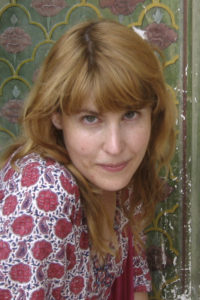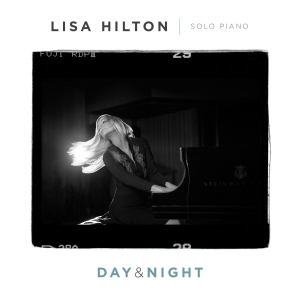Podcast (will-call): Play in new window | Download
Subscribe: RSS
Breaking the Glass Grid:
Gender and Transgender Bias
Across the Performing Arts Industry
This is Episode #56 of Will Call, here at the Greylock Glass, released Tuesday, February 28, 2017. I’m your host, Jason Velazquez, and I hope you’ve been enjoying our opening music, “Dark Sky Day,” by pianist and composer Lisa Hilton. We’ll play more from Ms. Hilton later in the show. Well, we had a grand time covering the 10X10 Upstreet Arts Festival, with our unauthorized submission of 10 Micro-casts over the course of the event, didn’t we? Now, though, it’s time to focus our attention on North County, as we speak with Amy Holzapfel about a panel discussion being held on the Campus of Williams College as part of its “CenterSeries” on Thursday of this week:
Ms. Holzapfel will moderate this conversation among some of the most respected personalities of American theatre today. The evening is CERTAIN to unflinchingly dissect some of the most troubling aspects of gender disparity plaguing the arts. The glacial pace of withdrawal of white male dominance on both sides of the curtain, as well as in the board rooms and administrative offices, has given rise to increasingly frequent and vocal dialogue in recent years.
Hosted by the Williams Theatre Department, the event occurs March 2nd at the ’62 Center for Theatre and Dance’s Adams Memorial Theatre, located at 1000 Main Street, in Williamstown, Mass. The event is free and open to the public, but due to the immense interest, the audience is advised to arrive early to secure a seat.
And now, let’s welcome to the show Amy Holzapfel, who manages to make contemplation of this weighty topic as refreshing as it is thought provoking.
Amy Holzapfel
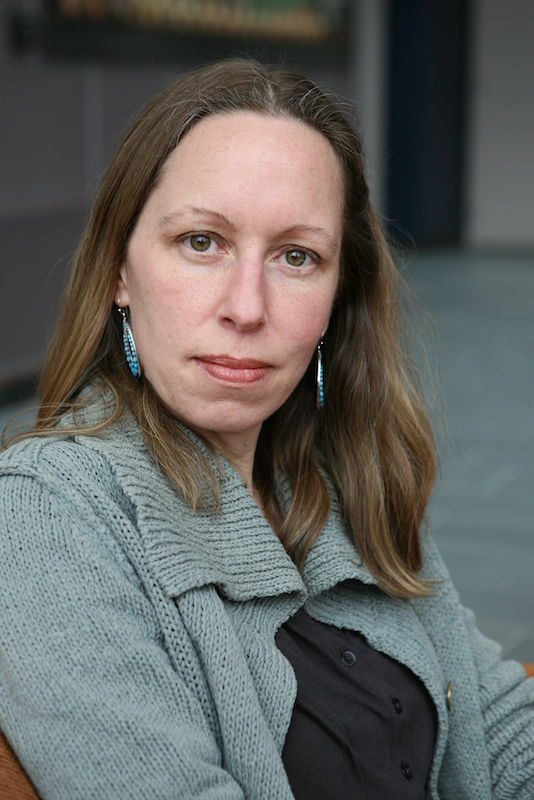
Amy Holzapfel is Chair and Associate Professor of Theatre at Williams College, where she teaches courses in theatre history and literature, performance studies, and dramaturgy. She also serves as dramaturge on Theatre Department productions and on the advisory committees of the Departments of Comparative Literature and Women’s, Gender & Sexuality Studies. Her principal research interests include: nineteenth-century theatre, theatre and visual art, dance-theatre, and contemporary performance. Her monograph, Art, Vision & Nineteenth-Century Realist Drama: Acts of Seeing (Routledge, 2014) explores how modern theories of vision in art and science impacted the rise of the realist movement in theatre. She has published articles in Contemporary Theatre Review, PAJ: A Journal of Performance and Art, The Journal of Dramatic Theory & Criticism, Modern Drama, and Theater, as well as chapters in the anthologies Spatial Turns: Space, Place and Mobility in German Literary and Visual Culture (Rodopi 2010), The Oxford Handbook on Dance & Theatre (Oxford 2015), The Routledge Companion to Scenography (Routledge 2017), and August Strindberg & Visual Culture (Bloomsbury 2018). She is currently at work on two research projects: the first exploring the lost chorus in modern performance and the second theorizing a post-Recession genre of “subprime critique and performance.” She received her M.F.A. (2001) and D.F.A. (2006) in Dramaturgy & Dramatic Criticism from the Yale School of Drama. She is the recipient of a Fulbright Award, a Hellman Fellowship, a Lehman Fellowship at the Oakley Center for the Humanities & Social Sciences, and a Research Fellowship from the American Society of Theatre Research, as well as two Honorable Mentions for her published essays.
Helga Davis
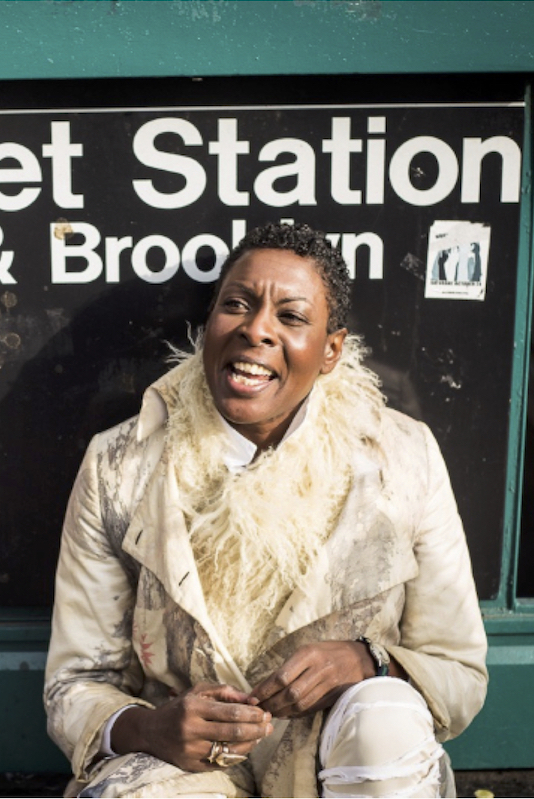
Helga Davis served as a principle actor in the 25th-anniversary international revival of Robert Wilson and Philip Glass’s seminal opera Einstein on the Beach. Her appearance in You Us We All by Shara Nova (My Brightest Diamond) and Andrew Ondrejcak marked her fifth at the Brooklyn Academy of Music’s Next Wave Festival. Among the many works written for her are Faust’s Box, written and directed by acclaimed Italian contemporary music composer Andrea Liberovici; Oceanic Verses by Paola Prestini, with libretto by Donna DiNovelli and video by Ali Houssani; Elsewhere by Missy Mazzoplli and Maya Beiser; and The Blue Planet, a multi-media theater piece written by Peter Greenaway and directed by Saskia Boddeke. She was also the co-star of The Temptation of St. Anthony directed by Robert Wilson, with libretto and score by Bernice Johnson Reagon of Sweet Honey in the Rock. Recently, Davis performed Yet Unheard by Courtney Bryan at Cooper Union, a work based on the poem by Sharan Strange and performed on the first anniversary of Bland’s death. Her work First Responder was conceived and performed at MassMoCA this fall after an invitation to respond to Nick Cave’s Until.
Mandy Greenfield
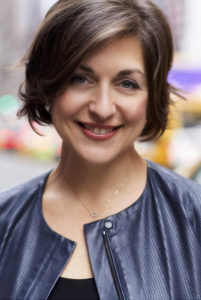
Mandy Greenfield is the Artistic Director of Williamstown Theatre Festival, one of the most influential American theater institutions for over six decades. In 2015, she expanded the New Play Development initiatives of WTF with the establishment of a New Play Commissioning Program and the creation of a Playwright-in-Residence position at the Festival. Prior to joining WTF, Mandy served as Artistic Producer of Manhattan Theatre Club where she produced more than seventy-five world and American premiere plays and musicals both on and off Broadway. The plays she has commissioned, developed, selected and produced have garnered every major theatrical honor including the Pulitzer Prize, Tony Award, Lucile Lortel Awards, Drama Desk Awards, Obie Awards, and the Kleban Prize in Musical Theatre. Mandy is a member of the Broadway League, she serves on the Advisory Board of the Drama League and The Relentless Award. She has been a judge and director of The Susan Smith Blackburn Prize. She is a graduate of Yale University.
Kristen Van Ginhoven
Kristen Van Ginhoven’s WAM Theatre credits include directing the New England Premiere of “In Darfur” by Winter Miller (beneficiary: 13 Housemothers at the Mother of Peace Orphanage in Illovo, South Africa); Northeast Regional Premiere of “Emilie: La Marquise Du Chatelet Defends Her Life Tonight’ by Lauren Gunderson (beneficiary: The Rites of Passage and Empowerment for Girls Program); World Premiere of “The Old Mezzo’ by Susan Dworkin (beneficiary: Shout Out Loud Productions); ‘The Attic, The Pearls and Three Fine Girls’ by Martha Ross, Ann-Marie MacDonald, Jennifer Brewin, Alisa Palmer and Leah Cherniak (beneficiary: Berkshire United Way Teen Pregnancy Prevention Initiative); ‘Melancholy Play’ by Sarah Ruhl (beneficiary: Women’s Fund of Western MA) and ‘The Last Standing Protestor’ by Lydia Styk for ‘A WAM Welcome’ (beneficiary: Women for Women International). She is a participant of the Michael Langham Workshop for Classical Direction at the Stratford Festival of Canada, where she will assistant direct the 2015 production of “The Physicists”. Additional directing credits include “The Whale” (Adirondack Theatre Festival), “10×10 Festival” (Barrington Stage Company, 2013/2014), “The Cabbage Patch” (Majestic Theatre), “Petticoats of Steel”(Capital Repertory Theatre). Kristen has also directed at Sienna College, Emerson College and Cohoes Music Hall. Selected assistant directing: 42nd Street (Stratford Festival of Canada) Two Men of Florence (Huntington Theatre) Sleuth, Absurd Person Singular (Barrington Stage Company,). She is an associate member of the Society of Stage Director’s and Choreographers, a member of the Canadian Actor’s Equity Association (CAEA) and was a member of the 2013 Lincoln Center Theater Directors Lab. As a theatre educator, Kristen has worked as an artist in residence and adjunct faculty at various colleges and universities, including Emerson College and Queen’s University. She is a freelance artist and consultant for ISTA (International Schools Theatre Association), an association devoted to international youth theatre education who hold events and festivals worldwide where young people, teachers and artists come together to explore theatre through intense collaboration. Kristen has a Masters in Theatre Education from Emerson College, where she received the Presidential Fellowship, a Bachelor of Arts from Dalhousie University and a Bachelor of Education from Queen’s University. www.kristenvanginhoven.com
Alexis Soloski
Alexis Soloski is a theater critic for the New York Times and the Guardian and a contributor to the New Yorker. She formerly worked as the lead theater critic at the Village Voice and has served on the Obie Committee, the Drama Critics Circle, and the Pulitzer Prize Drama Jury. She is a lecturer in Literature Humanities at Columbia University, where she earned her doctorate in English and Comparative Literature, and has also taught at Barnard College. Her academic writing has appeared in Theater, Theatre Journal, Modern Drama, and Literature and Medicine, among others, and she has contributed a chapter to Experiencing Liveness in Contemporary Performance from Routledge.
Basil Kreimendahl
Basil Kreimendahl’s play Sidewinders won the Rella Lossy Playwright’s Award and had its world premiere at The Cutting Ball Theater in San Francisco. Orange Julius was developed at the 2012 O’Neill National Playwrights Conference and was included in La Jolla Playhouse’s DNA new work series. Basil was commissioned by Actors Theatre of Louisville for Remix 38 at the 2014 Humana Festival of New Plays. Basil’s plays have also been developed by New York Theatre Workshop, About Face Theatre, Inkwell, Rattlestick, WordBRIDGE, The LARK, and The Oregon Shakespeare Festival. Basil has been a Jerome Fellow and is a current McKnight fellow.
A recipient of an Arts Meets Activism grant from the Kentucky Foundation for Women for theatre work with the trans community in Louisville, Basil has taught playwriting to elementary, high school, and college students, founded and ran a playwrights group for queer youth in Louisville called Out On The Edge, and was the Provost’s Visiting Writer at the University of Iowa 2013/2014. Basil’s work has been published by Dramatic Publishing and was included in Xlibria’s Becoming: Young Ideas on Gender and Identity. The Cost of a Goat won a National Science Award at KCACTF in 2012. MFA University of Iowa, 2013.
Natalie Robin
Natalie Robin is a NY-based lighting designer whose design work focuses on new American plays, contemporary dance and site-specific work. Natalie has taught at New York University, Williams College, Brooklyn College, and the University of New Haven. She has also been a guest designer and student mentor at several universities.
Currently, she is the Visiting Assistant Professor of Performance Design and Technology at Alfred University. Natalie is the Associate Producer of Polybe + Seats and an Associate Artist of Target Margin Theater. Natalie is a contributing writer for both Live Design and Stage Directions. BA: Columbia. MFA: NYU/Tisch. Member USA 829.
Lisa Hilton
Nineteen albums in, after working with the top-drawer jazz masters, like Antonio Sanchez, Christian McBride, Nasheet Waits, Sean Jones, and many others, Lisa Hilton strips her music down to the essentials and returns to the solo format with DAY & NIGHT, released just last month on the Ruby Slippers Productions label. Hilton was last heard in this setting with her acclaimed 2010 release, NUANCE, which All About Jazz said was “a recording that focuses and captures the exquisite subtleties of life”.
Hilton is considered one of the most distinctive composers and pianists in jazz today, her compositions drawing on classical traditions, twentieth century modernists, and the avant-garde as much as they look back to icons of American jazz and blues. Hilton’s blues inflected trans-genre or poly-genre style influences extend beyond jazz legends Thelonious Monk, Count Basie, Horace Silver and Duke Ellington, to include bluesman Muddy Waters and Robert Johnson, minimalists like Steve Reich, current rockers Black Keys or modernists Prokofiev, Stravinsky and Bartok. Originally from a small town on California’s central coast, Hilton studied classical and twentieth century piano formally from the age of eight, where she was inspired by her great uncle, Willem Bloemendall, (1910-1937), a young Dutch piano virtuoso.
In college though, due to the lack of creativity in the program, she became a music school drop out, switching majors and receiving a degree in art instead. Ever since becoming a professional musician, this background in the fine arts has well informed Hilton’s composition process. “While Louis Armstrong was performing, Monet was painting water lilies and French composers like Debussy were using harmonic ‘impressionism’. As a composer today, I explore music as art, building the composition with musical elements then ‘painting’ texture and color through various jazz approaches,” Hilton explains. “I might apply Seurat’s pointillism ideas to improvisation, creating new ways of expressing our life today.”



